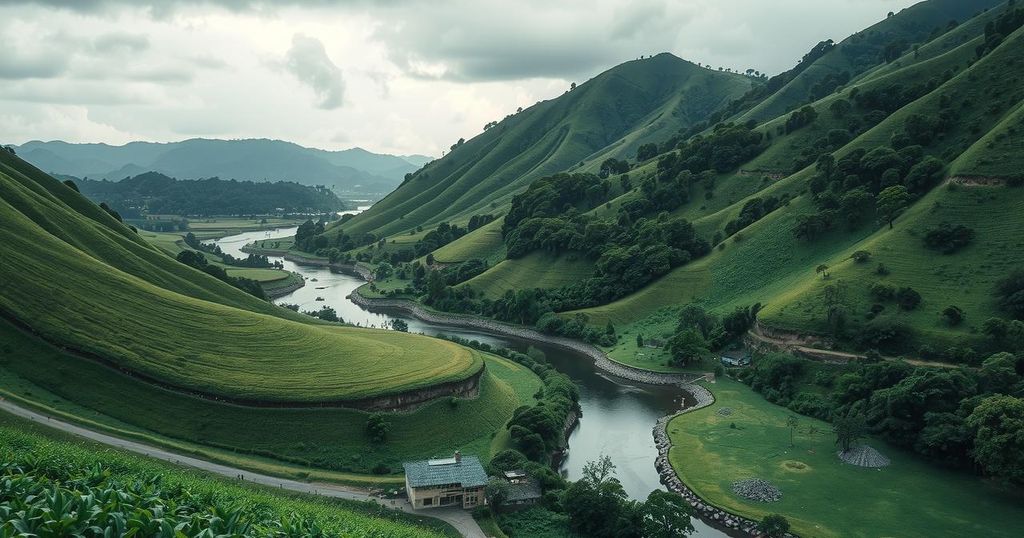The March 23 movement (M23), supported by Rwanda, has seized significant areas in North Kivu, including Minova and Sake. Recent conflicts have resulted in casualties among international peacekeepers, while over 400,000 individuals have been displaced. M23’s focus on controlling natural resources like coltan is evident, as they generate substantial income from these territories. With ongoing violence and failed peace talks, the humanitarian situation remains critical.
In recent developments, the March 23 movement (M23), with support from Rwanda, has captured substantial territories in North Kivu, eastern Democratic Republic of Congo. The militants have taken control of Minova and briefly seized Sake before facing resistance from Congolese forces. The United Nations has reported ongoing efforts by peacekeepers to assist the Congolese army in securing civilian areas caught in conflict zones.
An unsuccessful attempt by M23 to capture the bustling city of Goma resulted in the deaths of thirteen international peacekeepers, prompting an emergency session by the United Nations Security Council. The conflict has forced over 400,000 individuals to flee, often lacking essential resources such as food, water, and medical assistance. Many displaced persons have sought refuge in neighboring Rwanda amid fears of Goma’s potential takeover.
The M23’s military strategy appears driven by the desire to control the region’s rich natural resources, including gold, coltan, cobalt, and diamonds. Following their initial advances, the rebels are now targeting Walikale, noted for its significant coltan resources, key for energy transition efforts. Despite a ceasefire agreement facilitated by Angola, hostilities resumed in October 2024 following the collapse of peace talks between DR Congo and Rwanda.
Previously, M23 had occupied key locations, such as Kalembe, a strategic town vital for accessing mining resources. Experts, such as Professor Augustin Muhesi, assert that M23 aims to dominate these areas to fund their military initiatives. Currently, M23 generates approximately $300,000 monthly from taxes on coltan production in Rutshuru and Masisi regions, enhancing their operational capacity.
Accusations persist against M23 regarding the exportation of coltan to Rwanda. Reports from civil society groups indicate that M23 has resumed mining operations at Rubaya, which harbors significant coltan reserves. Estimates suggest around 3,000 to 4,000 Rwandan soldiers are actively aiding M23, who possess approximately 3,000 fighters, facilitating their territorial expansion along Lake Edward.
Non-governmental organizations tracking violence have recorded nearly 1,700 incidents linked to M23 since their re-emergence in 2021, resulting in the loss of 1,746 lives. This instance underscores the critical humanitarian and security situation prevalent in the region, exacerbated by continuous foreign military involvement.
The focus remains on the intertwining dynamics of local conflicts and international geopolitical interests surrounding the valuable mineral resources in the Democratic Republic of Congo, highlighting the need for effective diplomatic engagement to resolve the ongoing crisis.
The conflict in the Democratic Republic of Congo (DRC) has drawn international attention due to its complexity and severity, primarily fueled by the desire to control vast natural resources. Since its resurgence, the M23 rebel group, supposedly backed by Rwanda, has made significant territorial gains in North Kivu, intensifying violence and instability in the region. The international community, represented by the United Nations and various nations, has been involved in peacekeeping and mediation efforts, but these have faced challenges and failures amid ongoing hostilities. Coltan, among other resources, has become a key focal point in the conflict, directly affecting not only the local populations but also international supply chains.
The situation in the Democratic Republic of Congo, particularly in North Kivu, remains dire due to the resurgence of the M23 rebel group, which aims to consolidate control over valuable mineral resources. As the conflict escalates, resulting in significant civilian casualties and displacements, the international community faces pressing challenges in mediating peace. Without effective interventions and resolutions, the cycle of violence and exploitation of natural resources will likely continue, exacerbating humanitarian crises in the region.
Original Source: www.dw.com






